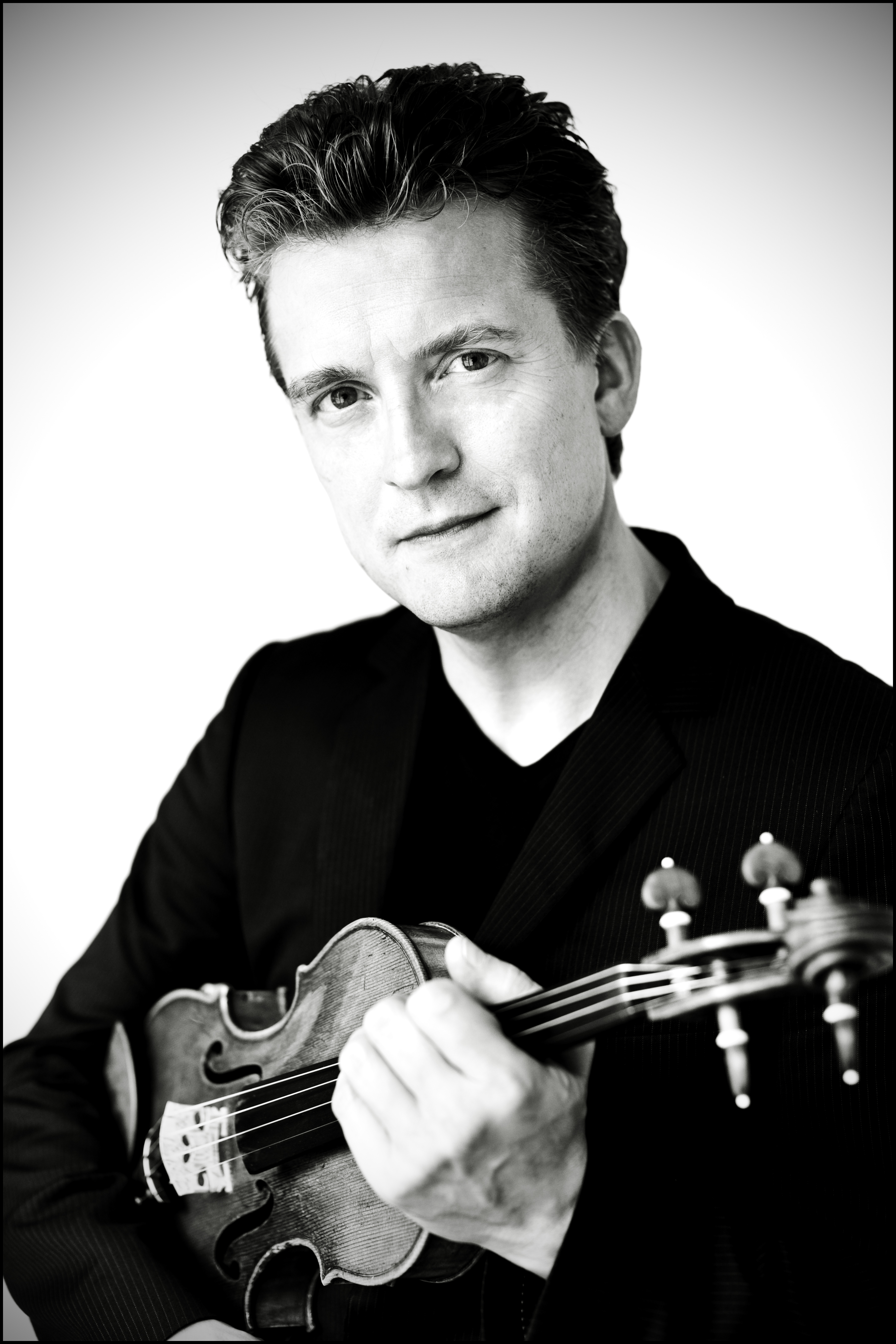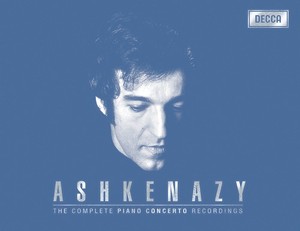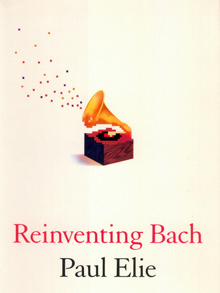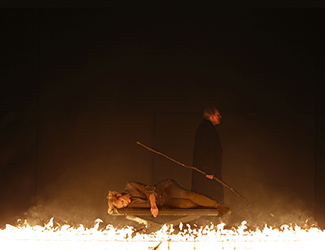‘Rock your socks off’ with the Mahler Chamber Orchestra
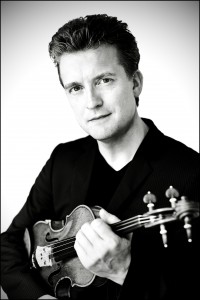
- Violinist Christian Tetzlaff, soloist with the Mahler Chamber Orchestra.
Yarmila Alfonsetti is a woman with a mission. That mission is to have Sydney on a par with other international cities in its menu of live classical music concerts. As producer of classical music events for Sydney Opera House Presents, a company that is based at the Sydney Opera House, Yarmila Alfonzetti is well placed to make this vision a reality. From her vantage point she can observe the broad brush strokes of Sydney’s classical music scene and curate a comprehensive collection of concerts from which Sydney’s concert goers may choose.
Her conversation is brimming with energy. “I would hate to think that people who live in Sydney and love it never have the opportunity of hearing, for example, an international orchestra unless they go overseas. For me that’s horrendous, awful and embarrassing. I believe the Sydney Opera House is well positioned to be the organisation that steps in and ideally, creates a beautifully rounded picture of classical music where we have multiple venues presenting everything from soloists to chamber music to large scale symphonic presentations, new pieces and classics.”
‘Classical music’. A nebulous term that can alienate, embrace, describe and pigeon-hole not just thousands of works, but the people who listen to them and the musicians who perform them. Alfonzetti’s task is admittedly tough, so for practical reasons, her perspective is simple. “Even though the reality is that there are many categories of music, we have two working categories. One is ‘classical’ and the other is ‘contemporary’. ‘Contemporary’ refers to bands, popular music which has its own charts, largely a younger demographic and often single performances. Everything that isn’t ‘contemporary’ is ‘classical’. The boundaries are blurred and I would hate to be the person who defines classical music” she admits. “But essentially, to perform that music which we call ‘classical’ you do need to have studied Western Art Music and developed some technique. You can’t play Steve Reich as a rock band with a repertoire of three chords. ”
The upcoming tour of the Mahler Chamber Orchestra (MCO) is one of Alfonzetti’s initiatives. She has heard them several times in Europe and says that they “rocked (her) socks off”. She believes the opportunity to hear international chamber orchestras is one of the bigger gaps in Sydney’s music scene.
The MCO is a very young ensemble, formed in 1997 by Claudio Abbado and former members of the Gustav Mahler Youth Orchestra. Today, it is a travelling orchestra with 45 core members from 20 different countries including Australian violinist Kirsty Hilton. The MCO has attracted the likes of conductors Mark Minkowski, Andris Nelson and Kent Nagano, and soloists Marta Argerich, Leif Ove Andsnes, Haken Hardenberger, Thomas Hampson and Lang Lang. In Sydney, the MCO will be conducted by Conductor Laureate Daniel Harding.
In enticing international ensembles to perform in Sydney, Alfonzetti points to the stratum of musicians who are not wanting for work, and who don’t want to lose time travelling here. “But what we can offer them is an engagement at the Sydney Opera House, which does mean something to them. I often present that fact and that there is an audience here who really deserves to hear them.”
Her thinking applies to one of the soloists with the MCO, Christian Tetzlaff. Between now and the end of May when he will perform in Sydney, Tetzlaff will play in New York, Miami, at the Vienna Konzerthaus, Wigmore Hall, The Barbican and the Berlin Philharmonie. According to The New Yorker “he is capable of flooring critics even with familiar masterworks.” Alfonzetti says “When I I heard him in Europe I told him that people in Sydney need to hear him, our professional performers and students need to hear him and learn form him (and that’s why we have a great student price). This guy is a genius and he needs to be heard. If we don’t bring him out, no-one else will.”
Adding to the melting pot of ‘contemporary classical’ music are works that are composed in symphonic style. For example, the soundtrack of movies like The Lord of The Rings and the numerous living composers who compose in a traditional style, moving back to tonality or a minimalist aesthetic , like Glass, Reich, Richter and Nyman. Just this week Steve Reich, premieres a new composition at London’s Royal Festival Hall, performed by the London Sinfonietta. Impeccable ‘classical’ credentials except that Reich’s Radio Rewrite was inspired by the music of Radiohead. In an interview coinciding with this premiere, Reich describes the influences on his writing which encompass a gamut of styles from 12th century French plainchant to John Coltrane.
Reich offers a solution: “Instead of thinking in terms of “classical” and “popular”, why not think in more informative terms such as “notated” and “non-notated” music? I’m pleased that young DJs remix my music. They take what I have notated from a recording and then manipulate that audio without notation.” (The Independent).
Alfonzetti’s brief as a producer involves a complex multi-factorial formula. Those factors include four major considerations of catering to audience tastes, keeping tickets affordable – 85% of her budget comes from box office sales – maintaining artistic integrity and not overlapping with the programmes of other companies resident at the Opera House.
Her observation on Sydney’s concert-goers is that they are by and large traditional in their bent. “A large part of this audience is from the Sydney Symphony. The other big group are tourists. Some want to be challenged and have new experiences, but when you’re travelling it is quite nice to see performers whom you recognise playing from the canon of classical music at a world famous venue.”
Alfonzetti is mindful that in Sydney, the costs of an evening of classical entertainment can add up, factoring in parking or transport, a meal and drinks, a concert programme and perhaps child-minding. “I try to remind myself that we work in a niche environment and that the average ticket buyer might save up and only go to a couple of things a year. I realise that they also want have a great night out and see something special. We don’t have enough that’s free and fun. It’s absolutely fantastic that we have commercial classical presentations in this city and I would like to have more of this at the Sydney Opera House, like free symphony concerts on the forecourt and concerts for young people. I just want people to hear and listen to as much as they can. I’m all about ‘more more more’!”
The conversation segues to the harsh realities of assessing the size of the population that can support classical music in Sydney. The city’s 4.5 million inhabitants are the target market for a professional opera company, three professional orchestras, a swag of smaller ensembles as well as visiting artists and excellent amateur ensembles. All too often, tickets are offered at heavily discounted advance purchase or rush prices; concert attendances can be dismally discouraging.
Alfonzetti is undaunted. ” I believe that the more you do, the more people want. You have to build an audience. You never hear people say there are too many theatres on Broadway. That’s because over time – dozens of years – the theatres have continued to build programmes and the audience has grown. We’re a young city; our venues are young. But I’ve got the dream. In decades to come I hope that we can look back and say we have great Australian ensembles that we can hear any time – but we also get to hear an international performers every year or two and there is an audience supporting them.”
Regardless of what is on offer, there will be a an element of the population who can’t or won’t pay to attend a classical concert. For them, free concerts and commercial productions are a potential drawcard, although commercial productions can be as costly to produce as conventional ones. It begs the question – do these presentations compromise artistic integrity? For example whilst a free open air event might draw thousands, is amplifying the sound a betrayal of ‘classical’ values?
There is balance to be kept. ” I care that people hear music. I can’t be on my high horse and dictate that we will only hear the best that the world has to offer. I have my personal quality markers – but I’m in a privileged position where I get to hear a lot of great music here and overseas. I have a long background of listening to and studying music. I feel quite comfortable in knowing what’s good and wanting to share that with our audiences. But I’m equally happy for people to go to commercial events. ”
Despite the arguments that free concerts and commercial presentations are feeder for concert subscribers, Alfonzetti quotes studies which have shown that the audiences at a commercial presentation or a free concert don’t translate to ticket buyers in the concert hall. They’re different groups who attend for different reasons, and it’s not a phenomenon over which she loses sleep. “I’m not so concerned about transferring the ticket buyers across presentations because all of these things have a place. If you look at culturally thriving cities they have all of these things in the mix.”
The last of Yarmila Alfonzetti’s four juggling balls is to work with the other companies resident at ‘The House’ which do the lion’s share of concerts there. She has access to all venues and uses this to work closely with the resident companies to complement what they do and create a holistic picture, not just in music but in all genres, like The Festival of Dangerous Ideas and All About Women filling a gap that is not being addressed.
Alfonzetti meets with the state orchestras, the Australian Chamber Orchestra and Opera Australia regularly. She assesses what they have planned and tries to address what is missing that can fill out the picture of classical music for Sydney. ” My three core programmes are the Utzon Chamber Music Series, the World orchestras series which brings a visiting international orchestra each year and ‘The Composers’ which is the focus on New Music. On top of that I programme and present other things, like the MCO. For example, this year we have Bryn Terfel because in 2013, we didn’t have an international opera soloist performing in Sydney. It’s hard work and it might not work perfectly or regularly to start with, but fortunately there are lots of people who share this dream.”
Finally, I asked Alfonzetti why classical music is worth defending – the juggling, the pleading with artists, the heartache of the fight for funding? Yarmila Afonzetti’s passion and conviction carry her through.”There is complexity, even in the most simple classical music, whether it is the Eine Kleine Nacht Musik, or the music from The Piano, Listening to various composers makes us more intelligent because there is complexity in what we listen to. That’s not to say there isn’t complexity in a lot of contemporary music as well – there really is and in a lot of pop music. Anything with an underlying complexity, even on a sub- conscious level that makes your mind work is important defending.”
“It’s vital that the Sydney Opera House has a rounded offering. It might not yet be frequent or regular, but the offering is there, so each year at the Sydney Opera House Sydney audiences can hear the full gamut of classical music- and that’s important to me.”
Shamistha de Soysa for SoundsLikeSydney©
The Mahler Chamber Orchestra performs at the Sydney Opera House on 10th and 11th June 2013.

